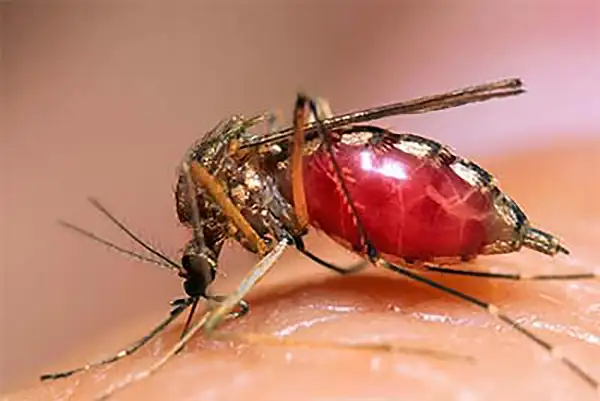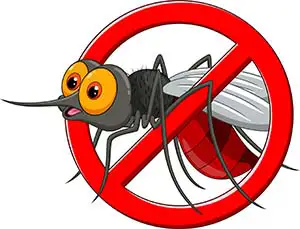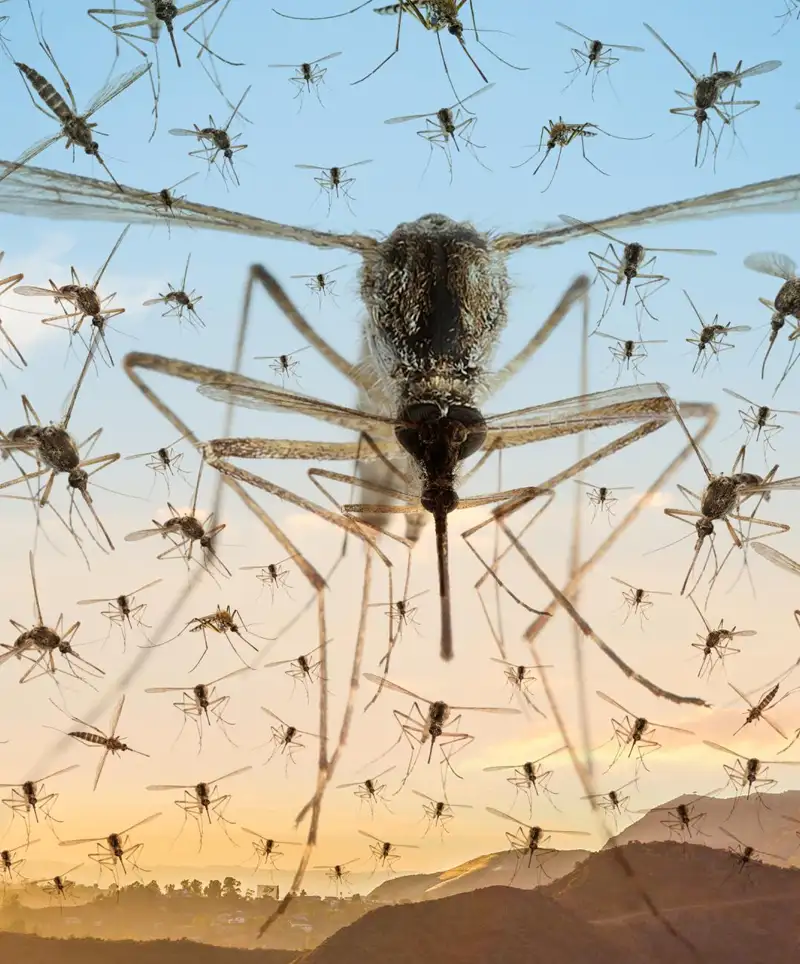Understanding the Dangers of Mosquitoes
Mosquitoes may be tiny, but they are among the most dangerous creatures on the planet. Despite their small size, these insects are responsible for spreading diseases that claim millions of lives every year. On World Mosquito Day, we take a closer look at the dangers mosquitoes pose, the diseases they spread, and what we can do to protect ourselves.
The History of World Mosquito Day
World Mosquito Day is observed annually on August 20th, commemorating the discovery made by British doctor Sir Ronald Ross in 1897. Ross was the first to identify that female mosquitoes of the species Anopheles were responsible for transmitting malaria to humans. His groundbreaking work earned him the Nobel Prize in Medicine in 1902 and laid the foundation for understanding the critical role mosquitoes play in the spread of diseases.
World Mosquito Day serves as a reminder of the ongoing battle against mosquito-borne illnesses and the importance of continued research and prevention efforts.
The Dangers Mosquitoes Pose
While mosquitoes may seem like mere nuisances that ruin outdoor activities with their itchy bites, the reality is far more serious. Mosquitoes are vectors for several life-threatening diseases, making them a significant public health threat. The World Health Organization (WHO) estimates that mosquito-borne diseases kill over one million people each year, with millions more affected by non-lethal cases.
 Here are some of the most dangerous diseases transmitted by mosquitoes:
Here are some of the most dangerous diseases transmitted by mosquitoes:
- Malaria: Perhaps the most infamous mosquito-borne disease, malaria is caused by the Plasmodium parasite, which is transmitted to humans through the bite of infected Anopheles mosquitoes. Malaria symptoms include fever, chills, and flu-like illness, and if left untreated, it can be fatal. Malaria is prevalent in tropical and subtropical regions, particularly in sub-Saharan Africa, where it remains a leading cause of death.
- Dengue Fever: Dengue fever is caused by the dengue virus, which is spread by Aedes mosquitoes, particularly Aedes aegypti. Symptoms include high fever, severe headache, pain behind the eyes, joint and muscle pain, rash, and mild bleeding. Severe cases can lead to dengue hemorrhagic fever, which can be life-threatening. Dengue is common in tropical and subtropical regions worldwide.
- Zika Virus: The Zika virus is transmitted by Aedes mosquitoes and is of particular concern for pregnant women because it can cause severe birth defects, including microcephaly, a condition where a baby's head is much smaller than expected. Zika has spread to many parts of the world, including the Americas, Asia, and Africa. In addition to birth defects, Zika can cause fever, rash, joint pain, and conjunctivitis.
- West Nile Virus: The West Nile virus is spread by Culex mosquitoes and can cause a range of symptoms, from mild flu-like illness to severe neurological disease, including encephalitis and meningitis. While most people infected with West Nile virus do not develop symptoms, those who do can experience severe complications, particularly older adults and those with weakened immune systems.
- Chikungunya: Chikungunya is another virus transmitted by Aedes mosquitoes, causing fever, joint pain, headache, muscle pain, and rash. The joint pain can be debilitating and, in some cases, may persist for months or even years. Chikungunya outbreaks have occurred in Africa, Asia, Europe, and the Americas.
- Yellow Fever: Yellow fever is a viral disease transmitted by Aedes and Haemagogus mosquitoes. It can cause fever, headache, jaundice, muscle pain, nausea, vomiting, and fatigue. In severe cases, it can lead to bleeding, organ failure, and death. Yellow fever is endemic in tropical areas of Africa and South America.
Why Mosquitoes Are So Effective at Spreading Disease
Mosquitoes are incredibly effective vectors of disease due to a combination of biological and behavioral factors. Here are some reasons why these tiny insects are so dangerous:
- High Reproduction Rate: Mosquitoes reproduce rapidly, with females laying hundreds of eggs in their lifetime. This high reproduction rate ensures a constant supply of mosquitoes, increasing the likelihood of disease transmission.
- Preference for Human Blood: Some species of mosquitoes, like Aedes aegypti, have a strong preference for feeding on human blood. This makes them highly effective at transmitting diseases between humans.
- Adaptability: Mosquitoes are highly adaptable creatures that can thrive in a variety of environments, from urban areas to remote jungles. They have developed resistance to many insecticides, making control efforts more challenging.
- Stealthy Feeding: Mosquitoes are expert at biting undetected, often feeding at dawn or dusk when people are less likely to notice their presence. Their saliva contains proteins that prevent blood from clotting, allowing them to feed quickly and efficiently.
How to Protect Yourself from Mosquitoes
Given the dangers mosquitoes pose, it’s important to take steps to protect yourself, especially if you live in or travel to areas where mosquito-borne diseases are prevalent. Here are some effective strategies for mosquito protection:
- Use Insect Repellent: Apply an EPA-approved insect repellent containing DEET, picaridin, or oil of lemon eucalyptus to exposed skin and clothing. Reapply as directed, especially if you’re spending time outdoors.
- Wear Protective Clothing: Wear long-sleeved shirts, long pants, socks, and shoes to reduce skin exposure. Light-colored clothing is less attractive to mosquitoes.
- Install Screens and Use Bed Nets: Ensure that windows and doors are fitted with screens to keep mosquitoes out. If you’re in an area with a high risk of mosquito-borne disease, sleep under an insecticide-treated bed net.
- Eliminate Standing Water: Mosquitoes lay their eggs in standing water, so eliminate any sources around your home, such as buckets, tires, birdbaths, and clogged gutters.
- Stay Indoors During Peak Mosquito Hours: Mosquitoes are most active at dawn and dusk. If possible, stay indoors during these times or take extra precautions if you need to be outside.
The Global Fight Against Mosquito-Borne Diseases
The fight against mosquito-borne diseases is a global effort that involves governments, health organizations, researchers, and communities. Efforts include developing and distributing vaccines, promoting the use of bed nets and insect repellents, conducting mosquito control programs, and educating the public about prevention.
One of the most significant advances in recent years has been the development of the RTS,S/AS01 malaria vaccine, which has shown promise in reducing malaria cases in children in sub-Saharan Africa. Additionally, research into genetically modified mosquitoes that can reduce mosquito populations or prevent the transmission of diseases is ongoing.
 Despite these efforts, mosquito-borne diseases remain a significant public health challenge, particularly in low- and middle-income countries. Continued investment in research, prevention, and control measures is essential to reduce the burden of these diseases.
Despite these efforts, mosquito-borne diseases remain a significant public health challenge, particularly in low- and middle-income countries. Continued investment in research, prevention, and control measures is essential to reduce the burden of these diseases.
World Mosquito Day is a reminder of the dangers mosquitoes pose and the importance of ongoing efforts to combat mosquito-borne diseases. While mosquitoes may be small, their impact on global health is enormous. By taking steps to protect ourselves and supporting efforts to control mosquito populations, we can help reduce the spread of these deadly diseases.
As we observe World Mosquito Day, let’s commit to raising awareness, supporting research, and taking action to protect ourselves and our communities from the dangers of mosquitoes. Together, we can make a difference in the fight against these tiny but formidable foes.
Please Share our Content






 Here are some of the most dangerous diseases transmitted by mosquitoes:
Here are some of the most dangerous diseases transmitted by mosquitoes: Despite these efforts, mosquito-borne diseases remain a significant public health challenge, particularly in low- and middle-income countries. Continued investment in research, prevention, and control measures is essential to reduce the burden of these diseases.
Despite these efforts, mosquito-borne diseases remain a significant public health challenge, particularly in low- and middle-income countries. Continued investment in research, prevention, and control measures is essential to reduce the burden of these diseases.








 "Sláinte!" is a traditional Irish expression used as a toast, equivalent to "Cheers!" in English.
"Sláinte!" is a traditional Irish expression used as a toast, equivalent to "Cheers!" in English.